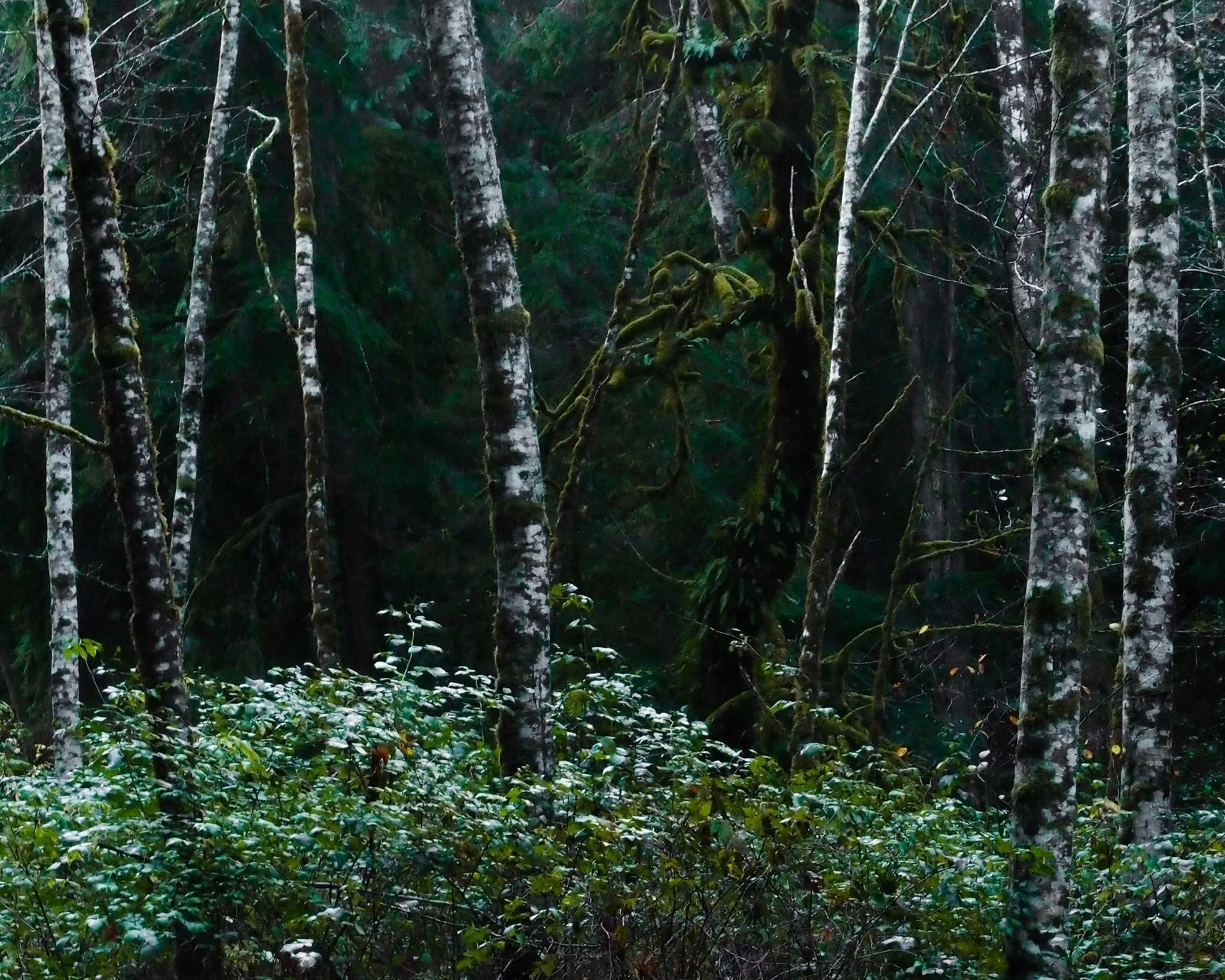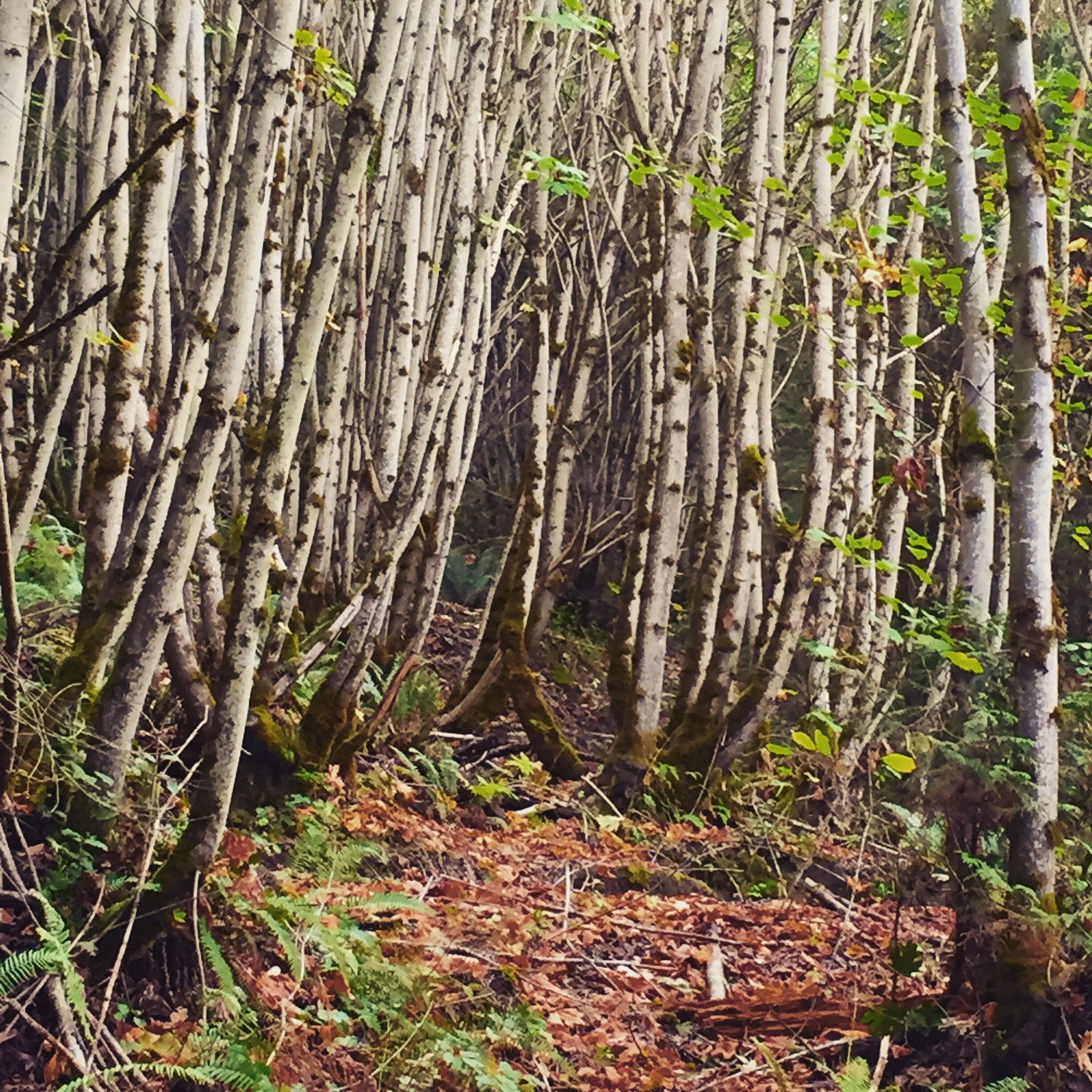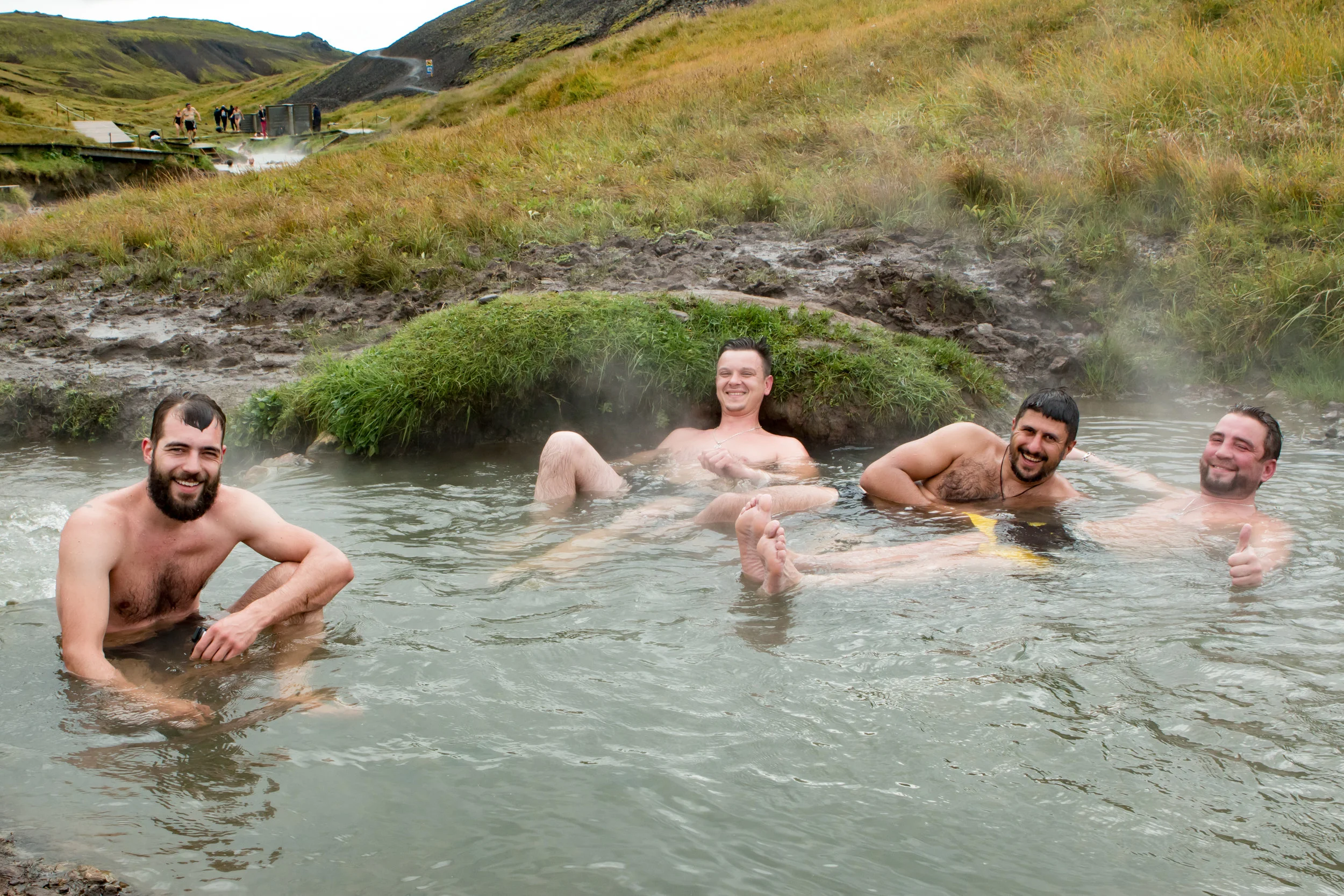Breathing Amongst the Trees
It’s been nearly five months since Washington State issued ‘stay at home’ orders. While I miss sipping an Old Fashioned at one of my favorite watering holes, what I miss most are trees. Not the ones in my backyard, or my neighbor’s yard, or the ones lining the city streets. I’m talking about grand congregations of trees. I’m talking about FORESTS - otherworldly, magical, peaceful. I have always loved being in the natural world. Since I was a kid, my feet were more often tethered to soil than concrete.
During this quarantine, I’ve thought a lot about nature and trees. Below is an ode to the wilds - albeit small - that were easily accessed through my childhood backyard in Hamden, Connecticut. I am forever grateful for the seed that my backyard woods planted in the center of my soul, a seed that’s germinated within me for all these many years. I will continue to water it with enthusiasm, wonder and respect.
When we weren’t eating or sleeping, or suffering through any of the other myriad obligations thrust upon us by our parents, we were in the woods. It was our land, our territory, where we made the rules. Here we could be invisible or fly. Here we could be super-heroes or villains. Here we could curse and gamble and smoke the cigarette snatched from a mother’s purse. Time, too, abided by different rules in the woods, moving at both a glacial and exponential pace simultaneously. Here, ‘forever’ was more than a word.
As we entered the woods, shadows swallowed the sunlight and the temperature dipped by ten degrees, at least. And it was silent - no bird song, not even the soft flutter of wings. The only sound was our feet on the path, a path we forged, its dirt hardened by our endless pursuit of new adventures. There was a fork in the path at which sat the Grandfather Tree. Gnarled, leafless and gray, he’d nod in welcome, his sapless branches creaking like dried bones. We’d bow in kind before turning right, darting past the Snake Pit towards the Swamp where we’d hunt for Jack-in-the-Pulpits amongst the skunk cabbage, our sneakers sloshing through gooey mud, our mothers’ consternation be damned. On other days, we’d head left to scramble up the Jungle Vines. Rumor had it you could see all the way to New York City if you climbed high enough. We never saw farther than State Street.
Nestled along the southern border of our suburban New Haven neighborhood, the woods were a deciduous mix of maple, hemlock and oak a century old. Each season brought rituals we honored with religious fervor. In summer we’d build forts which we disassembled every fall to protect the lumber from the ravages of inclement New England weather. In winter we’d pursue tracks in the snow, debating whether they were a squirrel, rabbit or cat. And in spring, we’d eagerly await summer’s return so we could catch fireflies, their tiny luminescent bellies blinking like fairies in the trees.
Then the ties appeared - thin, plastic, blue. We discovered them after school, interspersed among the burgeoning vernal leaves like voracious caterpillars. They were spaced every six feet or so, marking a crude line through the woods. We pinched them, trying to derive their meaning with our fingertips. A fence was erected the following week, slicing our woods in half.
We stood shoulder-to-shoulder, clutching the chainlink, our knuckles white, glaring not at the faceless enemy our parents described only as a “construction company”, but at the Snake Pit and the Swamp, and all the beautiful trees in between we couldn’t protect. Later that night, alone in our beds, wide-eyed and furious, we berated ourselves for being blind to the possibility our woods could be destroyed.
The bulldozers roared, the crack-crack-cracking of snapped trunks unbearable. We raced our bikes to the other side of town, to the ball-field behind our elementary school with its enduring dimensions of 60 feet from base-to-base. We’d heard the field at the junior high - which we’d all be attending the following year - was bigger, more on par with those of the major leagues; stealing a base was going to be far more difficult. Between the pitcher’s mound and home plate, we lay strewn in the tender grass, surreptitiously wiping our cheeks until early evening when we knew the damage was done.
On our way home, we stopped at the fence and stared at the freshly-turned soil flattened by heavy machinery, surprised at how small the now-empty lot actually was.
We tried resuming our old habits, bowing to the Grandfather Tree who didn’t welcome us as warmly as he had before. Maybe he felt guilty for surviving the saw. Time, too, had changed. We could hear its ticking, as if a giant clock hovered over us, insisting listen, listen. And since the right side of the fork had been severed by the fence, there was really no fork at all anymore, just a single path turning left, the only path for us to take.

























